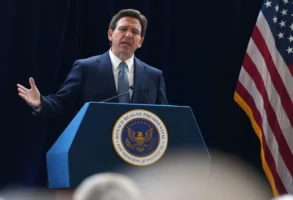Published June 10, 2015
Last night, on a vote of 229-193, the House passed an amendment to the THUD (Transportation Housing and Urban Development) Bill offered by Arizona Republican Congressman Paul A. Gosar. That amendment prevents the Department of Housing and Urban Development from implementing the Affirmatively Furthering Fair Housing (AFFH) regulation, issued in preliminary but not yet final form by the Obama administration.
As I explained yesterday, once finalized, the AFFH rule would be one of the most radical and transformative actions ever taken by the Obama administration. AFFH repudiates the core principles of our constitutional system by allowing the federal government to effectively usurp the zoning powers of local governments. Over time, AFFH would transform the way Americans live, urbanizing suburbs and Manhattanizing cities.
The Gosar amendment now goes to the Senate, where it is likely to spark vigorous debate. The prospects of Senate passage are real, yet very far from guaranteed. Should Republicans fail to block AFFH, this massive federal power play is likely to become a significant issue in the presidential campaign.
In the early stages, the AFFH rule will mandate the collection of information on the precise racial, ethnic, and income distribution of housing in nearly every census tract in the nation. Once that information has been gathered, escalating pressure will be placed on municipalities across the country to abandon local zoning policies and re-engineer housing stock at local expense. Municipalities will be pressured to join regional consortia that will have the effect of taking housing decisions out of the hands of elected officials and the citizens they represent. And the federal government will pressure localities to build dense housing developments near transportation hubs and business areas.
Hillary Clinton will surely support AFFH, and HUD Secretary Julian Castro, often touted as her likely running mate, will be in charge of its implementation. On the other hand, no Republican presidential candidate will back AFFH.
Since the early stages of the rule involve lengthy and systematic information gathering, the full force of AFFH will take time to emerge. Because the Obama administration has delayed this political hot potato to the end of the president’s term, it is the next president who will actually determine whether AFFH is entrenched or cast aside. So if the Gosar amendment fails and Obama finalizes the rule, AFFH is almost certain to become a significant issue in the presidential campaign.
— Stanley Kurtz is a senior fellow at the Ethics and Public Policy Center. He can be reached at [email protected].





